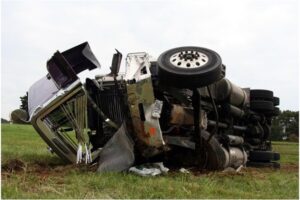Louisville, Kentucky, is a vibrant city bordering Indiana in the outer Bluegrass region. With diverse demographics and a median household income of $64,751, its bustling economy is driven by manufacturing and transportation, which means busy roads and, unfortunately, car accidents. Understanding Kentucky’s legal landscape is crucial if you’ve been injured in a crash. From no-fault insurance rules to potential liability claims, navigating a car accident claim here can be complex. We will guide you and break down the key steps to protect your rights and secure fair compensation.

Table of Contents
No-Fault Insurance System
Kentucky operates under a “choice no-fault” insurance system. This means drivers can opt for either no-fault coverage or traditional tort-based policies. Under no-fault insurance, your insurer covers medical expenses and lost wages regardless of fault. Personal Injury Protection (PIP) coverage begins at $10,000 and includes weekly reimbursement for lost income. You may need to file a lawsuit against the at-fault driver for property damage or pain and suffering claims.
When to File a Claim Against the At-Fault Driver
Under Kentucky’s no-fault system, injured drivers typically rely on personal injury protection coverage, but exceptions exist. If your medical costs surpass $1,000, or if you’ve suffered fractures, permanent disability, or disfigurement, you may step outside no-fault and pursue a claim against the at-fault driver. In these cases, experienced Louisville car accident lawyers can help determine whether a lawsuit could recover additional damages not covered by PIP, such as pain and suffering or lost wages. Legal guidance ensures compliance with procedural deadlines and evidence requirements.
Steps in Filing a Car Accident Claim
The process of filing a claim involves several key stages;
Notify Your Insurance Company
Contact your insurer immediately after the accident and provide details.
Demand Letter
Submit a demand letter to the at-fault driver’s insurer outlining the accident details, injuries sustained, and compensation sought. Include supporting documentation like medical records and proof of lost wages.
Investigation
Both insurance companies will investigate the accident by reviewing police reports, witness statements, and medical records.
Negotiation
Insurers often aim to minimize payouts. Negotiating with their adjusters or hiring an attorney can help secure fair compensation.
Settlement or Lawsuit
If discussions fail, you may file a lawsuit to collect medical expenditures, property damage, pain and suffering, and lost wages.
Importance of Evidence
Gathering evidence is pivotal for building a strong case. Key pieces of evidence include:
- Police report (helpful for fault determination but inadmissible in court due to hearsay rules).
- Medical records documenting injuries.
- Photos of vehicle damage and accident scenes.
- Witness statements.
Statute of Limitations
In Kentucky, you must file a vehicle accident claim within one year of the accident. If you miss this deadline, you may be unable to recover any damages.
Types of Recoverable Damages
Victims can seek compensation for various losses:
- Medical bills
- Property damage
- Lost wages
- Pain and suffering
- Wrongful death expenses in fatal accidents.
Role of an Attorney
Hiring an experienced accident attorney can simplify the process. Attorneys assist in evaluating damages, negotiating settlements, and representing you in court if necessary. They ensure compliance with legal deadlines and advocate for maximum compensation.
In Conclusion
Filing a car accident claim in Louisville requires navigating complex legal procedures while managing injury recovery. Understanding Kentucky’s insurance laws, gathering evidence meticulously, adhering to deadlines, and seeking professional legal assistance are vital steps to ensure fair compensation for your losses.




